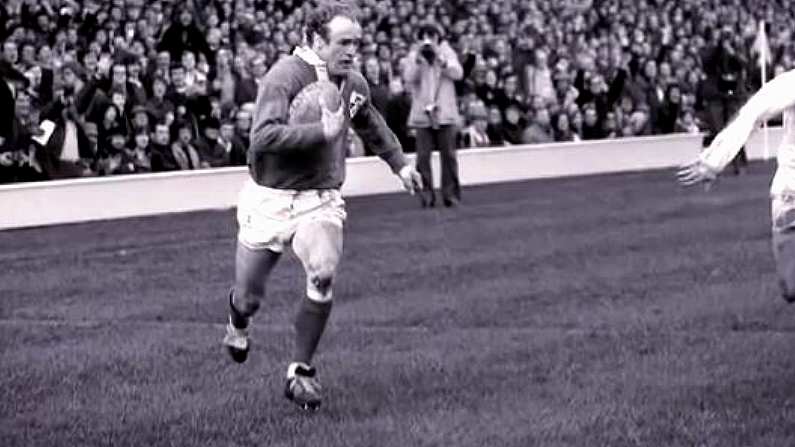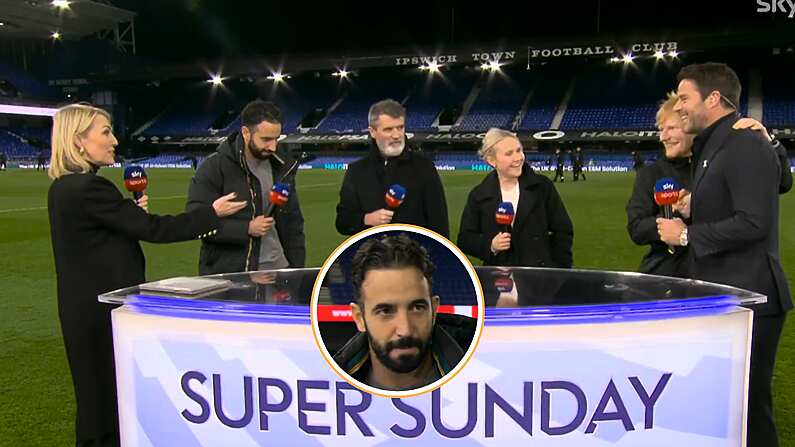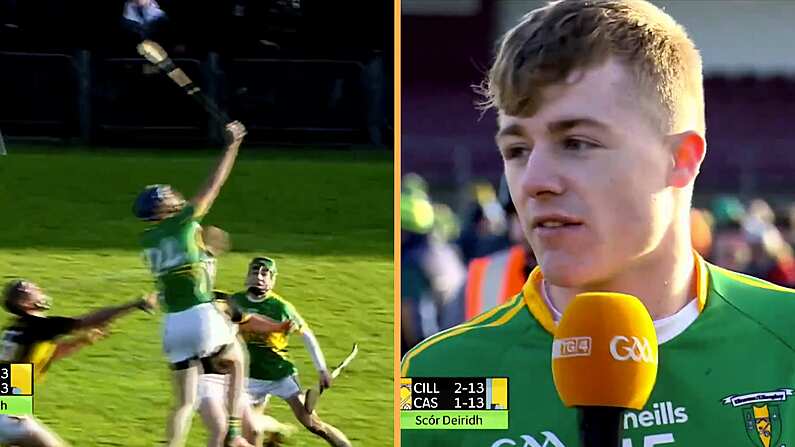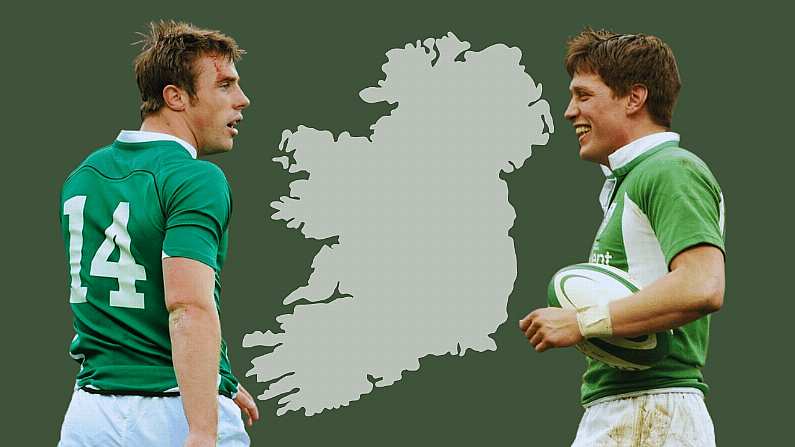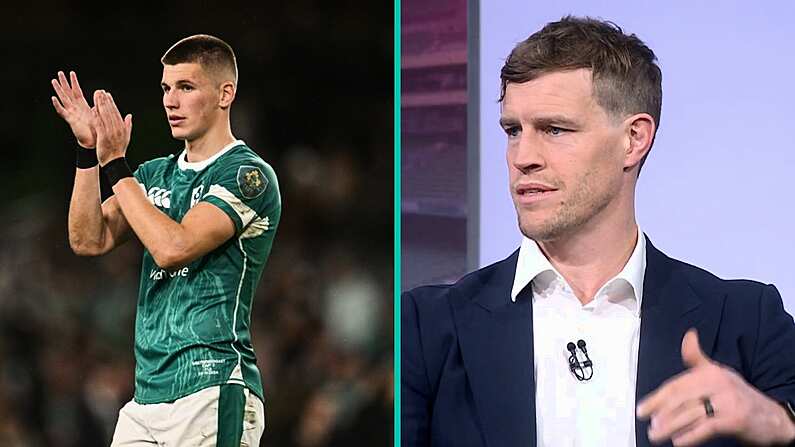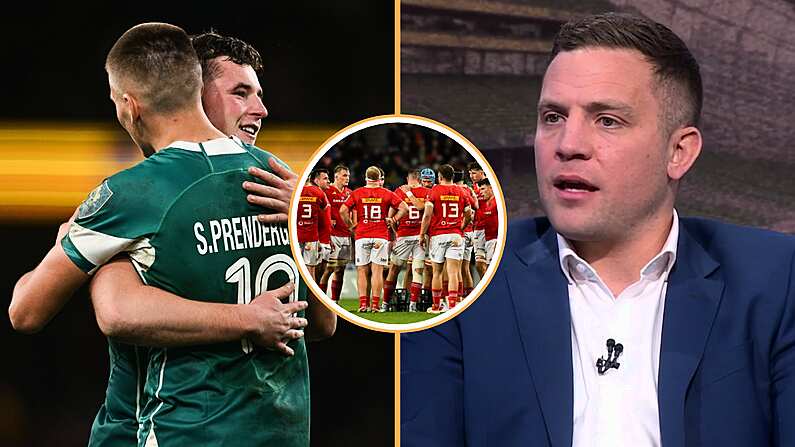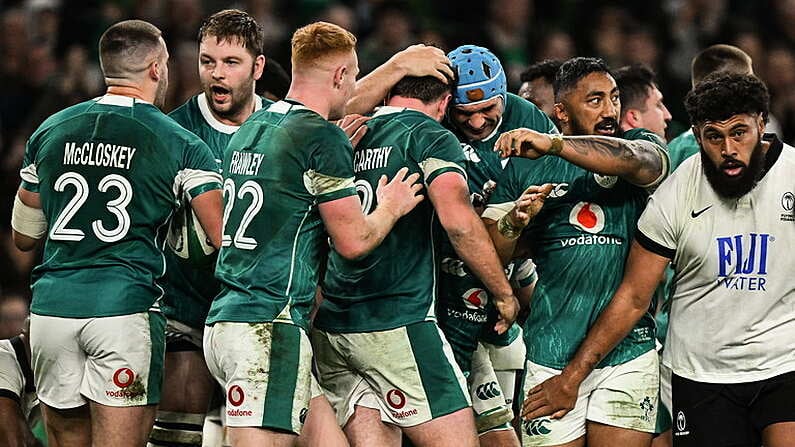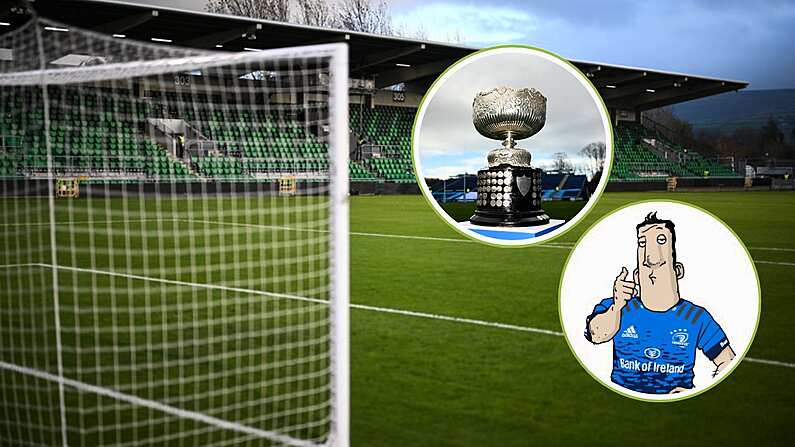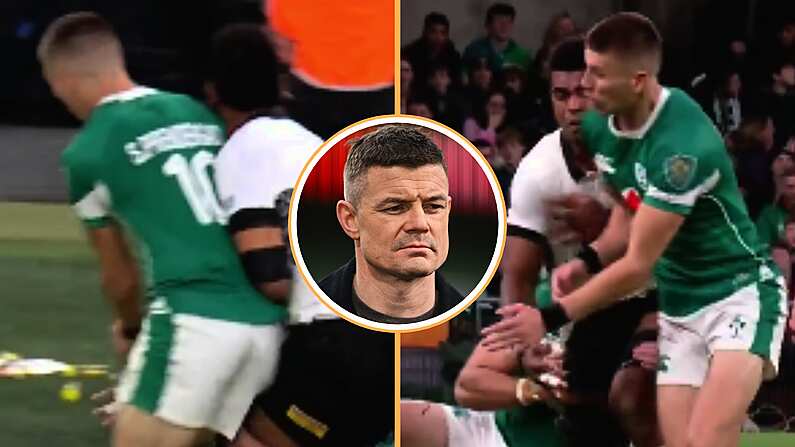Ginger McLoughlin hauling the English pack over the line in 82, Michael Kiernan kicking the drop goal in 85, and Tommy Bowe sliding in under the posts in Cardiff in '09. They've all been repeated ad nauseum, invariably featuring on those RTE montages where Tom McGurk strides along the Grand Canal and summons up his Old Testament poet voice while Sigur Ros or Explosions in the Sky clang away in the background.
1974 never gets a look-in.
But Ireland won the Five Nations Championship in 1974, their first title in 23 years. It is one of just five outright championships Ireland have won in the past 60 years. One would imagine it would be cherished more than it has been. It was, however, until the events of past two years, our only Championship in that time that arrived unaccompanied by either a Triple Crown or a Grand Slam.
One of the few times the success has ever been alluded to was by Fergus Slattery, at the start of some documentary on the 1974 Lions team. He just managed to squeeze the information in before all those Willie John McBride soliloquies kicked in.
The championship didn’t appear to be as much of a thing in those days. After all, Ireland won the championship outright in both 1982 and 1985 yet misty eyed nostalgics invariably refer to the achievement of the Triple Crown. The final insult to the 1974 team came when the people who get the final say in all of these matters, the producers of Reeling in the Years, excluded them from the 1974 programme.
This was, after all, the era of shared championships, a corinthian idea unthinkable in the modern game. Totting up points difference was a pedantic exercise unworthy of rugby men. They had jobs to go to, after-match pints to sup with opponents, and anecdotes to polish for future after-dinner speeches. They didn’t have time to be calculating points difference.
In 1973, all five teams won two matches and everyone shared the title, a touchingly amateur denouement. (The Welshman who authored the ‘1974 Five Nations Championship’ Wikipedia page made sure to point out that under modern rules, Wales would have won in ‘73 on points difference. Ireland would have finished second). Wales were the first team to officially win the championship on points difference back in 1994.
Statistics have never been king in rugby union. Even something as simple as tabulating the leaderboard at the end was often ignored. It was all about individual clashes rather than the League table. In 2000, Scotland had a terrible Six Nations campaign, losing their first four matches. However, the only thing anyone remembers from the season is their surprise final day win over Grand Slam chasing England. The Scotland boys, who just dodged the wooden spoon, were celebrated as heroes. Woodward’s England meanwhile, who had trounced everyone in the competition until that point, emerged wearing the glummest expressions possible to collect the trophy and the title that has been more or less forgotten about.
‘74 was certainly unusual in that Ireland only amassed five points on the way to winning it. The fact that Ireland won it that year is treated as some sort of statistical accident rather than as an actual achievement. However, this was no points difference triumph. Low scoring rugby matches were still commonplace and three games finished in draws. Three teams sat on four points, Scotland, Wales and France, while England propped up the table with three points.
IRELAND’S 74 CAMPAIGN
Mike Gibson was very much the main man, the Brian O’Driscoll of the 70s and one of the best centres ever to play. A slinky, intelligent player who rarely took the wrong option. In the era of freight trains like Matthieu Basteraud in the centre, it is a strange to watch old clips of the slim, elegant Gibson glide and feint his way through matches. Bill McLaren described him as the “greatest all around footballer” he’d ever seen (though McLaren said that about a few players. I’m pretty sure he said the same about Campese at one point). Gibson played a then record 69 caps between 1964 and 1979. ‘74 was to be his only Championship win.
Mick Quinn was picked at outhalf ahead of the usual first choice at no. 10, fellow Lansdowne player and former underage soccer international, Barry McGann (though McGann originally came from Cork and started with Cork Constitution). Ireland’s fantastic veteran full-back Tom Kiernan retired at the end of ‘73 season and missed out on the Championship win. He was replaced by UCD’s Tony Ensor. The two wingers were St. Mary’s Tom Grace and Ballymena’s brilliantly named Wallace McMaster. Ireland’s scrum was anchored by two of our finest ever props, Ballinasloe’s Ray McLoughlin and the St. Mary’s tight head Sean Lynch. Flanker Fergus Slattery would be one of the stars of that year's Lions tour.
It was also Moss Keane’s debut season for Ireland. The 25 year old Keane (as the myth usually goes, Keane, John Hayes-like, took up rugby about fortnight before his first international cap) was placed alongside Willie John McBride in one of the more iconic second row pairings ever to line out for Ireland. Keane and Slattery were the only players to win in both ‘74 and ‘82.
Ireland opened their account with a 9-6 defeat in the Parc des Princes. This new venue (Ireland had beaten France two years previously in the Stade Colombes) would be the scene of many grinding defeats for Ireland over the next 22 years. They would not win again in France until the spanking new Stade de France had been opened.
Ireland’s second game was a 9-9 draw at home to Wales, the heavy favourites for that year’s Championship. It wasn’t looking terribly promising. However, there followed a sensational 26-21 win in Twickenham. Ireland ran in four tries with the Ulster centres Mike Gibson and Dick Milliken, and the UCD full-back Ensor all in super form. If the championship has an iconic, montage moment, it is Ensor beating his man on the outside and laying the ball off to Gibson who glides in for his second try. Scrum half Johnny Moloney scored a breakaway try in the second half and Cork back-row forward Terry Moore nabbed another.
It was less obligatory for out-halves to be able to kick penalties in those days. Interestingly, in Ireland’s final game, a 9-6 victory over Scotland in Lansdowne Road, flanker Stewart McKinney stroked over a penalty. Ensor was presumably too injured to take it. It was a rare spectacle of a forward taking a penalty. The last time, Lansdowne Road has seen the like was when John Eales stood over a couple of shots in the 1999 World Cup.
CONTROVERSY: WELSH COMPLAINTS AND ‘THE BLIND IRISH REFEREE’
One of the few other places where the championship result is recorded is on Wikipedia, where it has clearly been doctored by a Welshman. Much is made of JJ Williams’ late disallowed try in the tournament’s final game at Twickenham, a score ruled out by “a blind Irish referee”, apparently a household term in Wales.
Wales needed a win in Twickenham to take the championship. Williams’ try would have given them victory but the Irish referee, Dubliner John West, was having none of it. Belfast’s Simon McDowell could have learned a lot from that man. Wales lost 16 - 12 and Ireland took the title. Max Boyce, the singer, who was to Welsh rugby what Cliff Richard was to rained off days at Wimbledon, penned a song entitled ‘Blind Irish Referee’ which he sung for years afterwards.
West, the referee at the centre of the decision, currently lives in Foxrock and is not inclined to brood over the decision.
There was a dive-in try and there was two guys diving for it, JJ Williams and Duckham, and I didn’t think Williams got it. Simple as that... They dived for the ball and I thought Duckham was underneath him.
JJ Williams was incensed by the decision. He told David Tossell, author of 'Nobody Beats Us: The inside story of Welsh rugby in the 70s';
It was farcical. I scored a try, looked back and he was on the halfway line. I had even winded myself by landing on the point of the ball. Duckham and Squires both said "No try." Bastards. We ragged the English boys for four months on the Lions tour.
West went on to have a distinguished career as a referee, officiating at his last Five Nations game in 1983. Intriguingly, he was the first international referee to referee a test match in New Zealand in 1979. Unbelievably, the custom in the Southern hemisphere before that was that the home side would supply the referee. West is relaxed about all the Max Boyce joshing.
“The Max Boyce thing was good fun. I’ve no problem with that. I managed to get slight revenge on him. I was speaking at a dinner over in Wales and Max was at it. I said ‘It was a great pleasure to meet a minor Welsh poet who I had rescued from comparative obscurity.’”
Long-time Irish Times rugby correspondent and rugby historian, Edmund 'Ned' Van Esbeck, has little sympathy for the idea in Wales that they were robbed.
"John West was an excellent referee and he called it as he saw it... I think it was a bit of a whinge from the Welsh to be honest."
“UNFORTUNATELY IT TENDS TO BE FORGOTTEN…”
"It was a bigger thing than the Triple Crown, but unfortunately it tends to be forgotten when they are doing highlights of past Irish performances," outhalf Mick Quinn told the Irish Independent a few years ago.
Perhaps the ‘74 Irish championship win is undervalued because it was won on a weekend when the Irish players had their feet up on the couch.
This was the pre-Italy era when one team had a weekend off. Ireland sat out the final round of games. Rather like Jack Charlton, who had to be told by Jimmy Armfield on BBC Radio that Scotland had beaten Bulgaria and Ireland were going to Euro 88, the Irish team learned that they were Five Nations while sitting at home watching Bill McLaren on the box. The lack of some Ronan O’Gara/Michael Kiernan style climactic moment has definitely hindered it in the public memory and from the point of view of the RTE montage makers.
John West, the referee who was in action on the final weekend certainly believes so.
"It was a funny sort of one all right. They didn't get much publicity for it. Possibly it was because it wasn't won with Ireland playing. We all remember the Michael Kiernan moment. But if you win it because two results fall your way in matches..."
No doubt, nowadays, television cameras would pop up in the players homes as they watched the closing minutes. The trophy would be handed out to the suited up players at some ceremony in the Mansion House. Couldn’t have happened in 1974. Rugby back then was a great believer in the power of the ‘mythical trophy.’ The only actual trophy handed out was the Calcutta Cup. The first team to claim an actual trophy for winning the Five Nations was one of the less dazzling France sides in 1993.
Van Esbeck reckons that that championship victory was the least that Irish team of the early 70s deserved, not least because of the manner the perhaps more celebrated Irish side of 1972 were denied a shot at the Grand Slam.
“That (early 1970s) was a very good Ireland side. In my view, in ‘72, they were deprived of a Grand Slam when the Welsh and the Scots refused to come. We'd beaten France away and we'd beaten England away and we had the two of them to come here... That 74 team, they certainly deserved a Championship.”
1974 FIVE NATIONS TABLE

